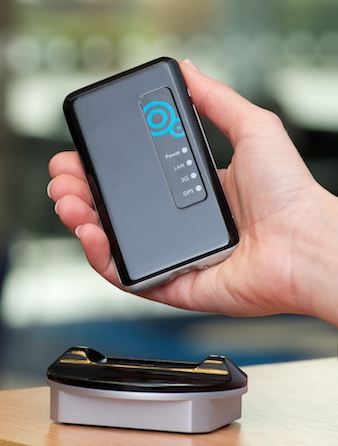ip.access has demonstrated a “working concept design” of an extra-small femtocell – a design it is calling the Advanced Femtocell Concept (AFC).
Although the design is described as a concept, a statement from the company said the AFC, “unlike many concept products, is fully working”. ip.access said that the AFC is about the size of a smartphone and offers much more flexibility as to where a femtocell can be located, as it can connect to the internet or home router via WiFi rather than only through a fixed connection.
ip.access’ CTO, Dr Nick Johnson, said that the design is not intended to make its way to the market exactly as it is. In a company video (see below) he described the design as like a “concept car.”
“You’re not going to see this on the shelves any time soon, but you are going to see the technology inside it in next generation products from ip.access:
the compact antenna solution, the compact form factor, the portable nature of it, the fact you can put it anywhere in the house — these are the things you are going see in next generation products.
As well as WiFi, the product also has integrated GPS, which ip.access said is to meet regulatory requirements for operators in certain markets — ip.access cited the USA — to know exactly where their femtocells are located. GPS location could also be used to lock out a user from taking the AFC on their holidays, and plugging it in in a foreign country. This could be illegal, as the device operator would be likely to have no license to use that spectrum in that country. An accompanying fact sheet said, “GPS location locking prevents the device transmitting outside the regions covered by the mobile operator’s spectrum license.”
ip.access said that a small, standalone femtocell, independent of a home router or set-top box, could give mobile operators the option of offering customers a femtocell without the customer or operator bearing the cost of a full, integrated device. And then, of course, there’s the increased flexibility in terms of location.
Although ip.access’ concept design requires a DC power connection when it is not plugged into a router, a battery-powered option could also be possible in future, ip.access’ statement said.



